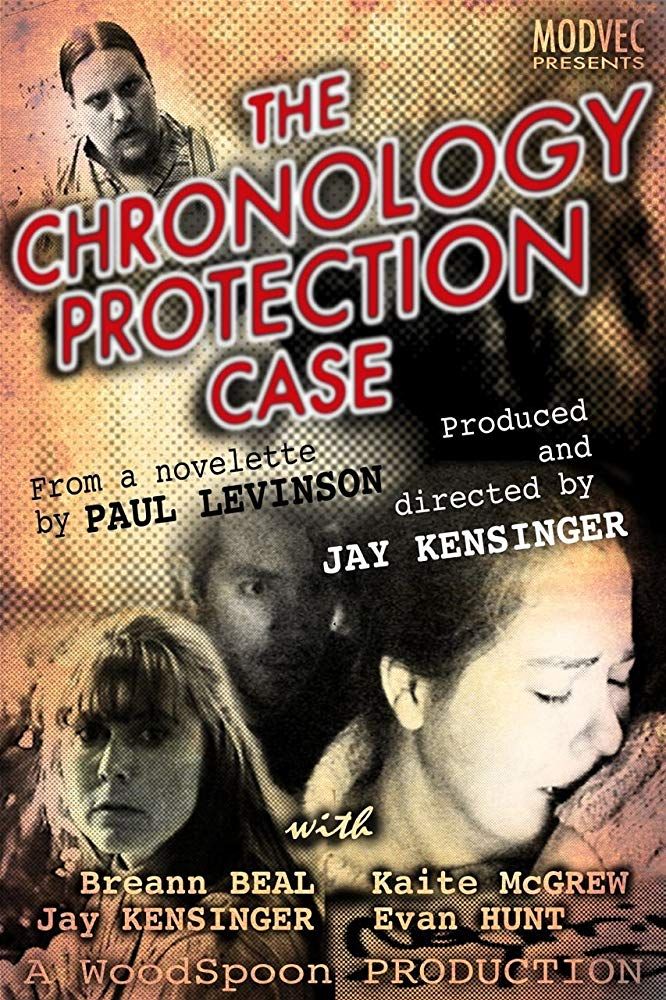
Readers of this blog will know that my favorite genre -- as a viewer, reader, and author -- is time travel, and its close relative alternate history. You'll know this because I say it in just about every other post. But you would also know this because, at least by my lights, excellent and even good examples are not easy to find (and, I'll immodestly or modestly say, as an author, to write).
But Aporia, a 2023 movie I saw last night on Hulu, is an excellent example. The heart of its narrative is that a would-be inventor (later, inventors), of a time machine discovers that the clanky machine he's struggling to build in his home can't quite do it -- it's not powerful enough to hurtle a human back in time -- but it can send a subatomic particle back to a specific time and place (the time just a handful of years or a little bit in longer into the past), where it will cause a very minor explosion. And the inventor realizes that if the place in the past where the subatomic particle lands is inside someone's head, well, what he the inventor has created is a gun that can reach back and kill someone in the past, by putting one of these time-travelling particles into the target's head.
[And I'll here I'll tell you that there will be spoilers ahead ... ]
So, there are three main characters in Jared Moshe's movie (which he wrote and directed): Jabir and Mal were working on the time machine in Jabir's home, when Mal was killed by a drunk driver. This of course left his wife Sophie desolate. Jabir is desperate to ease her pain, and restore her life, and comes up with a plan: send one of those lethal subatomic particles back in time, to land in the drunk driver's head, before he gets into the car and accidentally kills Mal. And the plan works!
But that's when Aporia really gets riveting and ethically wrenching, as Sophie struggles with the fact that although she got her husband back, she had to take another human life to do it. She reaches out to the drunk driver's widow. They become friends, and so do their daughters. And here the movie excels in depicting how the people who know the original reality, and know that it has been altered, deal with the new reality they now inhabit. (I tend to like this metaphysics of time travel -- that people who cause the changes in time are aware of the changes, even if the changes affect them -- maybe because I always employ such a narrative structure in my own works.) As Sophie gets to know the drunk driver's family, she finds she can't bear the fact that she was responsible for killing the drunk husband and father, however much he may have deserved it ... but any attempt to change the past again by killing someone else with a time-traveling particle could have unforeseen consequences ...
Aporia resonantes in all kinds of ways. The build-your-machine-at-home continues the tradition started by H. G. Wells' The Time Machine, and furthered more recently by Primer and just a few months ago Quantum Suicide. The idea of sending something rather than people or living things back in time was put to good use by Gregory Benford in his 1980 award-winning novel, Timescape, in which information could be sent back in time. And the idea of apprehending criminals, not because they committed a crime, but because you know they will commit a crime, was of course memorably developed by Philip K. Dick in his novel The Minority Report.
But Aporia has a story and an ambience all its own, brought to life by really excellent acting by Judy Greer as Sophie, Edi Gathegi (who has been great in For All Mankind, and before that, StartUp) as Mal, and Payman Maadi as Jabir. And all of this builds up to a top-notch ending, in which a smile tells us almost everything.
my interview with Jared Moshe

watch the movie on Amazon Prime Video -- read the novelette here

in Kindle, paperback, and hardcover
No comments:
Post a Comment